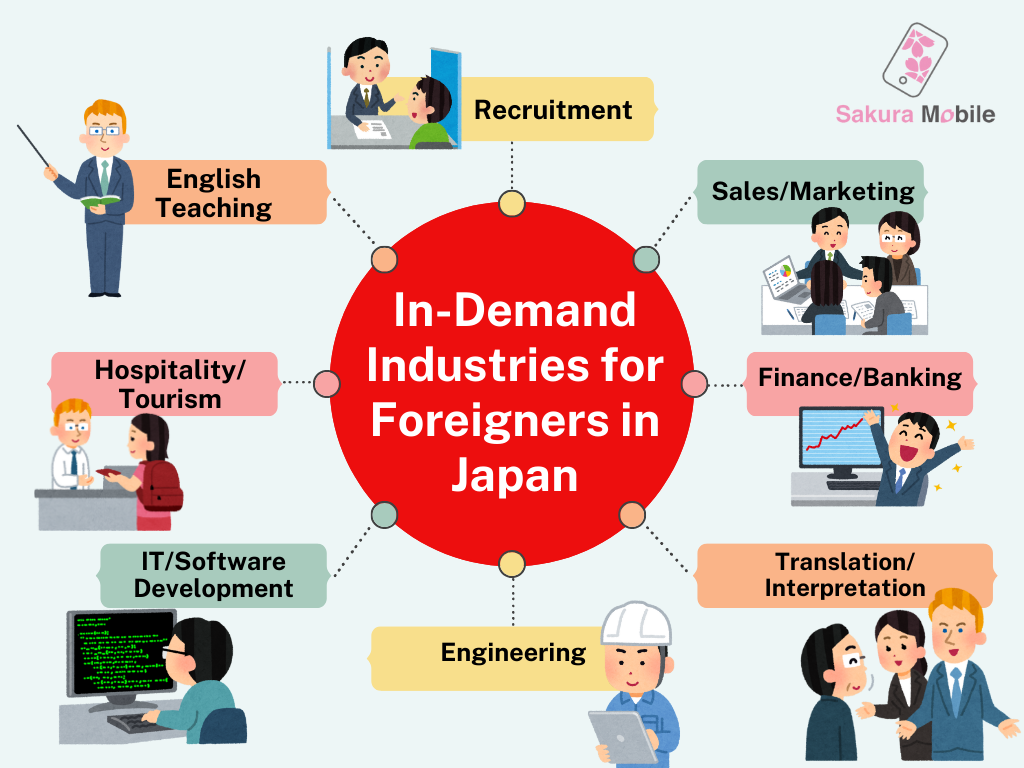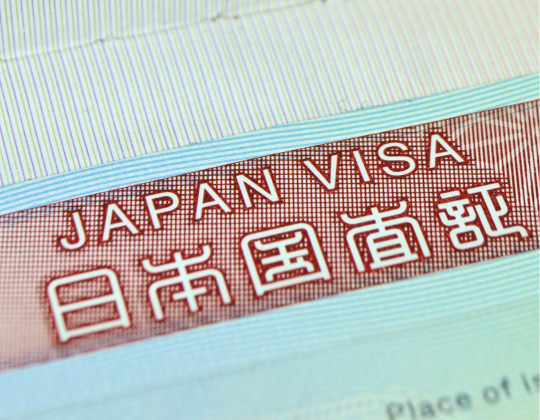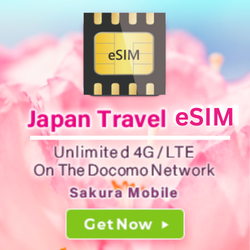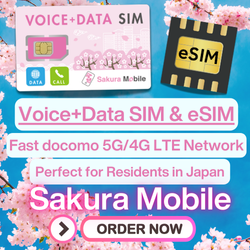Dreaming of working in Japan but not sure how to get started?💭🗾
If you recently applied for the JET program, you might already know that the first-round results are out, and interview results will roll out soon. For those exploring alternative pathways to work in Japan, this guide is here to help!✨
There are many jobs in Japan for foreigners, ranging from teaching English to working in IT or hospitality. Whether you’re looking to build a career or test the waters with a working holiday, we’ll break down the key steps to make your dream a reality.

Hello readers! Sakura Mobile is a SIM Wi-Fi service provider for international residents and tourists in Japan.
Our global editorial team living in Japan will introduce the country’s charms based on what we have experienced and felt.
Table of Contents
Jobs in Japan for Foreigners: Guide to Finding Jobs from Overseas
Before we dive into the requirements for foreigners working in Japan, check out some of the most common industries below!

1. Requirements for Working in Japan
To work in Japan, you must meet specific requirements:
- Valid visa: You must have a valid visa or a company willing to sponsor your visa.
- There are many types of visas, but you must have a visa that permits you to work in the designated field.
Ex. If you are an English teacher, you might be granted an “Instructor Visa” or an “Engineer/Specialist in Humanities/International Services Visa,” depending on many factors.
It’s also important to note that most skilled roles in Japan require either a Bachelor’s degree OR 10 years of relevant work experience.
See our blog below for more details about the different types of visas in Japan!
Basic Process for Obtaining a Work Visa

Below is the basic flow for getting a work visa from overseas:
- Apply for a job ➡️ Pass the interview! 🥳
- Accept the company’s offer. ✅
- The company applies for a Certificate of Eligibility (COE) on your behalf. 📝
- Once you have the COE, apply for a work visa at your nearest Japanese embassy/consulate. 🎌🏛️
As with immigrating to any country, there is paperwork involved, but the hurdles to getting to Japan aren’t as high as you might think.
We will also discuss alternative paths to Japan below, so don’t despair!😊
For those planning long-term stays, having a Japanese phone number is essential for daily life. Sakura Mobile offers reliable options for residents in Japan!
↑ Go back to the table of contents
2. Pathways to Finding a Job in Japan
Working Holiday Visa (WHV)

If your country is eligible, the Working Holiday Visa (WHV) is a fantastic option for experiencing life in Japan.
Basically, a WHV allows you to work and travel in Japan for up to one year. This is perfect for individuals who want to test out life in Japan for a few months to a year before deciding if they want to live in Japan more long-term.
Jobs on a WHV also tend to be more temporary, so they allow for more flexibility to explore Japan.
For more details on getting jobs on a WHV, check out our guides below!⬇️
📢Note that not all countries have agreements with Japan, and age restrictions depend on countries’ bilateral agreements, so check eligibility before applying.
↑ Go back to the table of contents
Online Job Sites

Just like in your home country, applying online is the main method for finding jobs nowadays.
While you’ll recognize some of the major job-hunting platforms listed below, we’ll also share some Japan-specific sites that you might find useful.
Popular platforms in Japan include:
- General jobs: Indeed, LinkedIn, Rikunabi (only in Japanese)
- Targeting foreigners: GaijinPot, Jobs in Japan, Daijob, NINJA (only in Japanese), enworld, and CareerCross
- Tech jobs: JapanDev, TokyoDev
↑ Go back to the table of contents
Recruitment Agencies

For foreigners looking to work in Japan, most recruitment agencies specialize in industries like IT, engineering, and finance. While overseas applicants face more competition, some agencies offer visa support, relocation assistance, and interview coaching for high-level candidates.
Some of the most common recruiters in Japan include Robert Walters, Hays Japan, and Michael Page.
Platforms like Bizreach, GitTap (for IT jobs), and mynavi also help match experienced professionals with high-level positions.
TIP: Industries like IT and software engineering are highly competitive, especially for junior roles. Employers typically prefer candidates with 3-5 years of experience or advanced Japanese skills.
To stand out, consider gaining relevant certifications and JLPT (Japanese Language Proficiency Test) certification to show your language abilities.
🌸Stay connected as you navigate your job hunt in Japan! With Sakura Mobile’s affordable long-term SIM/eSIM plans, you’ll have a local number to manage everything from recruiter calls to apartment searches.
↑ Go back to the table of contents
Networking

For those applying to jobs in Japan from abroad, building connections is just as important as finding the right job listings.
Platforms like LinkedIn and Meetup are useful for connecting with industry professionals and attending virtual events that provide insights into the Japanese job market.
Wantedly (only in Japanese) is another great option, especially for those interested in startups and entrepreneurial roles. While it focuses on in-person networking, many companies also engage with global talent remotely, making it a useful platform for those applying from overseas.
↑ Go back to the table of contents
3. Other English Teaching Opportunities Besides JET

Many people use English teaching as a stepping stone for entering Japan, since it has the lowest barriers to entry for those who just graduated from university or those not fluent in Japanese.
Although it is arguably the most widely known, the JET Program isn’t the only pathway for teaching English in Japan. Many private companies and dispatch agencies hire English teachers coming from overseas.
- Dispatch ALT Companies: Ex. Interac, ALTIA, Borderlink
- Eikaiwa (English Conversation Schools): Ex. AEON, Gaba, Nova
While it’s well-known that the JET Program usually offers the greatest benefits for English-teaching jobs in Japan, one con to JET is that you cannot choose your location. If you go with private companies, you have more freedom to choose where you want to work in Japan.
Of course, the cons with private companies can be lower wages, having to pay for your own flight, etc.
For more information on English teaching in Japan, check out our blogs on Working in Japan as an ALT (Assistant Language Teacher) and Your Ultimate Guide to Finding English Teaching Jobs in Japan.
🌸Looking to teach English in Japan? Make your transition to life in Japan smoother with Sakura Mobile’s Voice + Data SIM/eSIM! Join the many JET participants and ALTs who trust Sakura Mobile for staying connected.🌸
↑ Go back to the table of contents
4. When You’re Not Ready to Commit to a Job

If you’re not ready to commit to a job in Japan, consider visiting Japan on vacation or trying a short stay first. You can use this time to explore the culture and get a feel for the job market.
Many people also join a Japanese language school first to reach proficiency in the language, then enter a vocational school or a Japanese university. Some also jump straight into job hunting after completing their language courses (if they already have a Bachelor’s from their home country).
⚠️Important: You can only attend Japanese language school for a max of 2 years (based on visa restrictions), so you’ll need to plan your next steps carefully.
Job hunting as a tourist?✈️
Job hunting on a tourist visa is not recommended. Even if you find a job within 3 months, you’ll likely need to return to your home country to complete visa processing. You’re also not allowed to work on a tourist visa, so you’d have no way to support yourself while you job hunt.
🌸 Visiting Japan to explore your options? Make the most of your stay with Sakura Mobile’s Travel SIM or Pocket WiFi!⬇️
↑ Go back to the table of contents
5. How can Sakura Mobile Help?

Whether you’re settling in Japan or just visiting, Sakura Mobile offers tailored solutions to keep you connected.🌸
-
Long-term Products – for those looking to settle in Japan/stays longer than 90 days.
For those staying long-term, our Voice + Data SIM/eSIM will provide you with a Japanese phone number, essential for managing contracts, banking, and everyday life in Japan.
Having a local number also makes it easier for recruiters and potential employers to contact you.
Why Choose Sakura Mobile?🌸
- English-Friendly Service: From sign-up to customer support, everything is in English!
- Nationwide Coverage: Reliable connectivity across Japan with the NTT docomo network, covering 99% of the population.
- Flexible, Commitment-Free Plans: Say goodbye to rigid 2-year contracts and hefty cancellation fees. Cancel anytime.
-
Short-term Products – for visitors exploring Japan and weighing their options.
Our Travel SIM/eSIM and Travel Pocket WiFi are perfect for visitors and individuals staying less than 90 days!
With flexible plans and customer support in English, Sakura Mobile ensures that your communication needs are always covered, no matter how long you stay in Japan.
↑ Go back to the table of contents
6. Conclusion

Working in Japan is achievable with the right approach. Whether you’re looking for a long-term career or testing the waters with a working holiday, Japan offers opportunities for people from all backgrounds.
Make sure to research the visa process, tailor your resume for Japanese employers, and connect with professionals in your desired field.
No matter where you are in your journey, staying connected is essential. Sakura Mobile can help you navigate your time in Japan with reliable mobile plans tailored for both short-term visitors and long-term residents.🌸
Let Sakura Mobile be your partner in making your dream of working in Japan a reality!
See our plans below!🌸
Related Articles📝
↑ Go back to the table of contents







